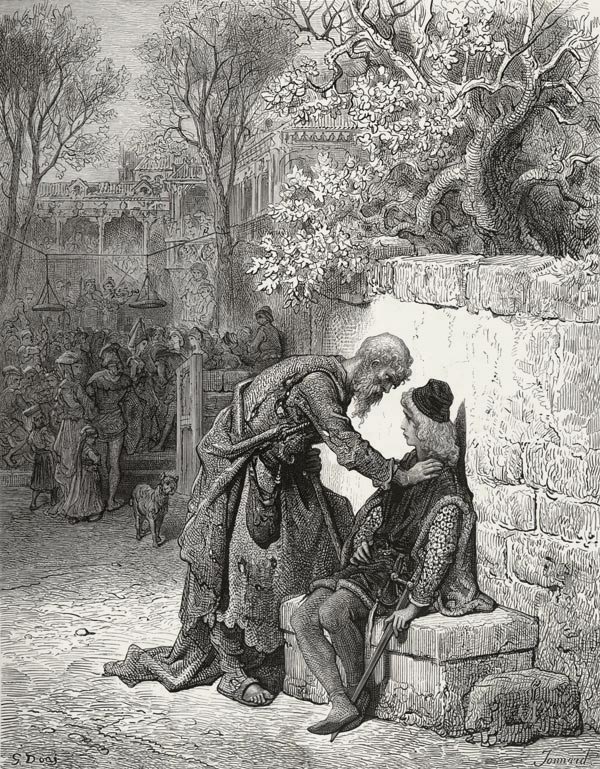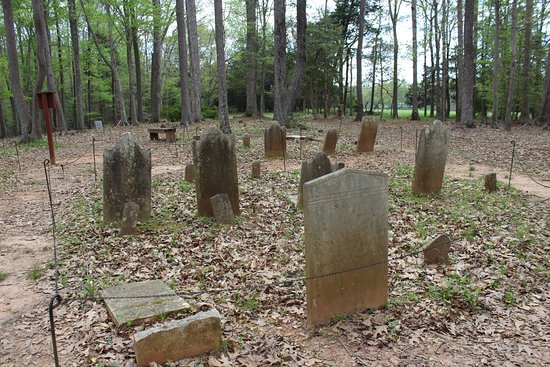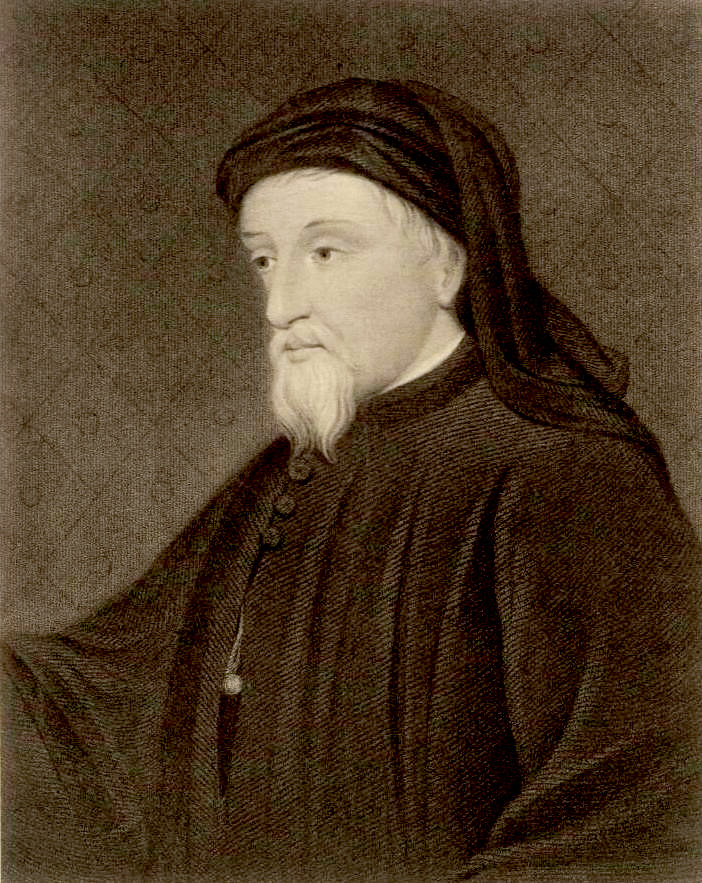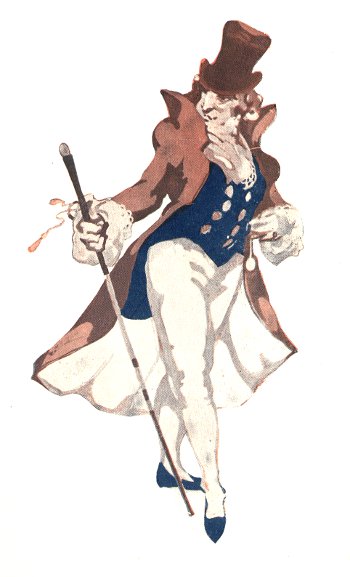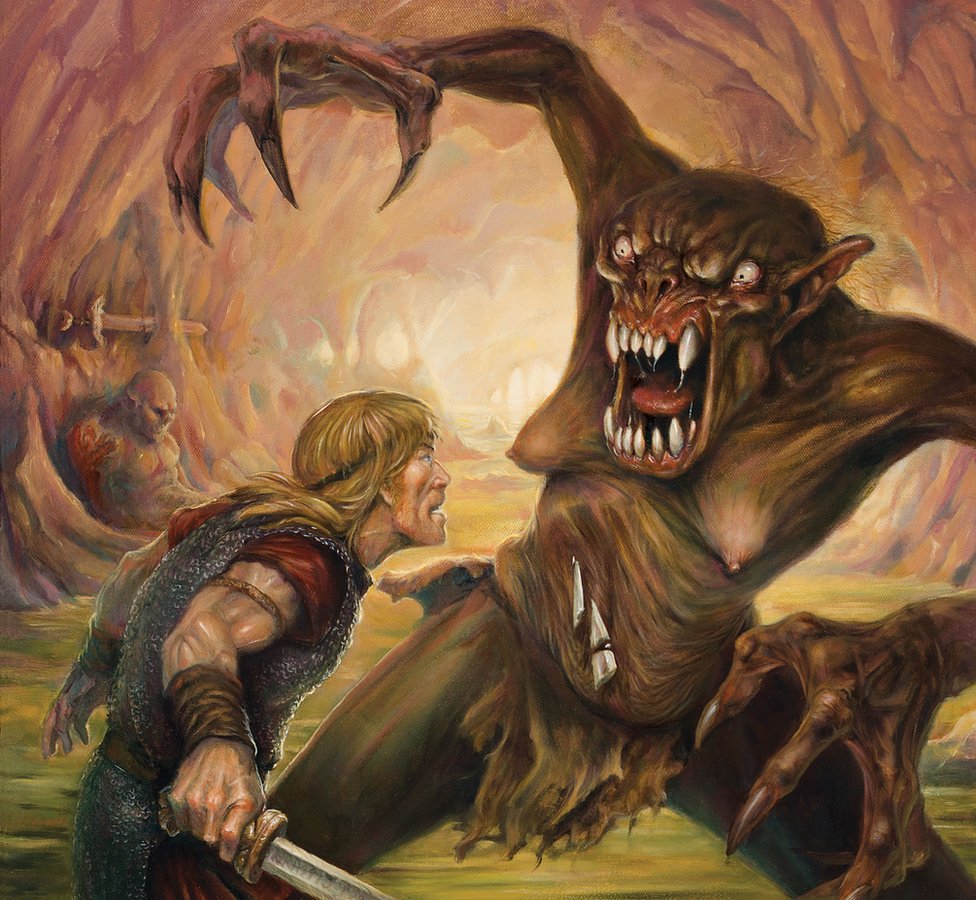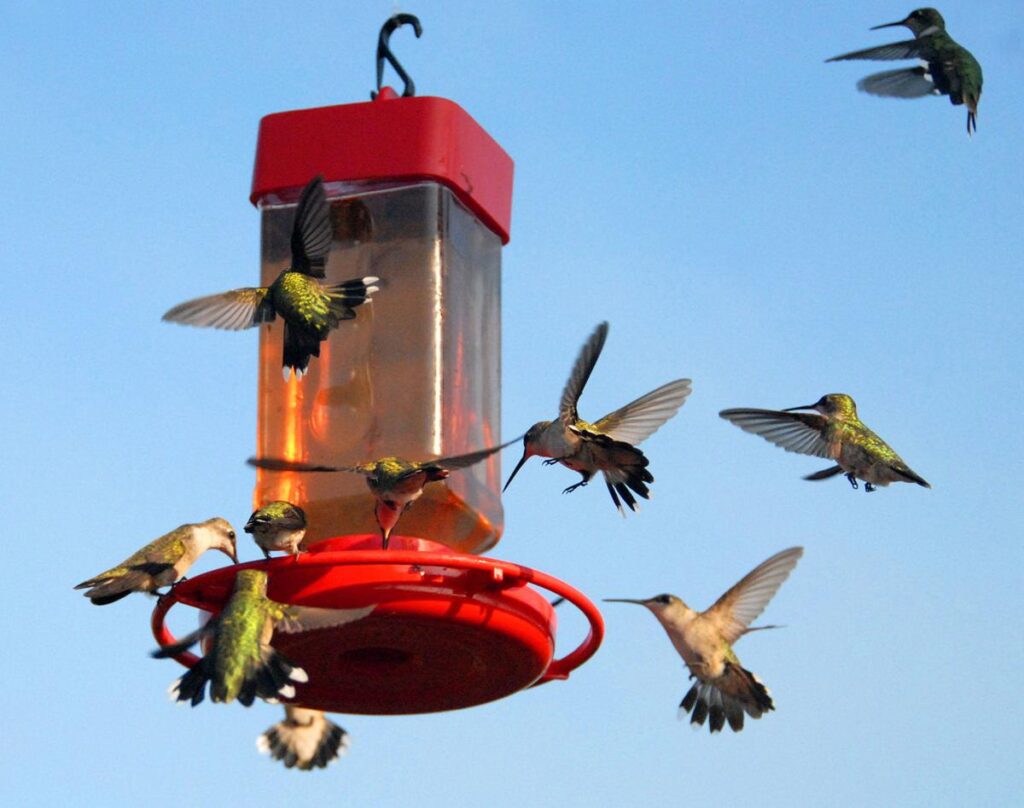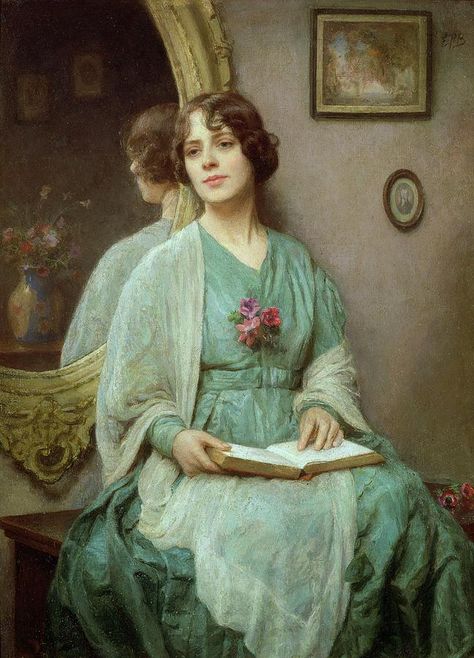Tuesday
Tomorrow I will be giving the following talk to the Chautauqua series at the Monteagle Sunday School Assembly. The talk is entitled “When Grendel Invades Your Safe Spaces–What Would Beowulf Do?”
For years, when I would teach the 8th century Anglo-Saxon poem Beowulf, I would present my students with the following hypothetical. Imagine, I said, that you’re the most powerful nation around and you have built an immense governmental building that signals your strength to all the world. And yet, despite that military might, you cannot prevent the White House or the Capitol Building from being attacked. That’s because the attacks come not from without but from within.
The situation is summed up in the immortal words of the comic strip character Pogo: “We have met the enemy and he is us.” If you can imagine that situation, I told my students, you will be able to understand Danish king Hrothgar’s despair at Grendel’s attacks.
I didn’t foresee that my hypothetical would become real and that an angry mob of Americans would one day overrun the U.S. Capitol. But I did know that we live in a violent country and a violent world that regularly witness what should be safe spaces invaded by violence, whether they be schools, churches, synagogues, recreation centers, night clubs, movie theaters, outdoor concert venues, summer camps, seaside walks, the list goes on and on. There’s a reason, in other words, why readers continue to gravitate to Beowulf, one of the world’s greatest literary explorations of anger and violence.
To cite a few examples of its continuing appeal, in 2000 a new translation by Nobel laureate Seamus Heaney became a surprising bestseller, making it onto the New York Times list. Since then there have been 10 more translations, including one by Tolkien—released by his estate—and one much-commended version for millennials by Maria Dahvana Headley, which opens with the word “Bro.” There have also been two movies.
Before I delve into the poem’s profound insights into internal violence and what can be done about it, here’s some history. The poem was probably composed in Mercia or Northumbria, perhaps as early as the 7th century, perhaps as late as the 10th—which is to say, well after the Romans have withdrawn from England, after the Angles, the Saxons and the Jutes from Northern Europe had taken over, but either before, during, or after the Viking raids. We can’t be more precise than that. The poem itself is set in Scandinavia—there are allusions to events that occurred in the 6th century—and in some ways it’s a celebration of past glory. They don’t make heroes like they used to, the poet essentially tells us.
The societies of the time were tribal—nothing like the feudal states or the nation states that would emerge later—and they made their living largely by farming, trading, and raiding, whether for wealth or for slaves. The more powerful of the tribes could exact tribute from the others. The basic social contract, which is repeated over and over in Beowulf, is that warriors should be loyal to their king and that kings should be generous with their warriors. When both sides kept their part of the contract, all went well. But if warriors were not loyal or if kings hoarded rather than shared the wealth, there was trouble.
The poem may have been composed orally and then transcribed later by monks. There is debate over whether its Christian elements were added later or were part of the original composition, but in any event the Biblical allusions are all to the Old Testament, which would have resonated more with a warrior culture than the New Testament. After lingering in obscurity for centuries, the poem was rediscovered by the Victorians, who were looking for instances of past British greatness, and then brought to general attention by Oxford scholar and linguist J.R.R. Tolkien in an essay entitled “Beowulf: The Monsters and the Critics.” Since then, Beowulf has become an integral part of every British literature survey and is now considered one of the world’s great epics.
Plot-wise, the epic is anchored in three battles with monsters. A young warrior from Geatland shows up in the powerful Danish court promising to rid it of a troll that, for the past ten years, has plagued the great hall of Heorot, rendering it unusable. After Beowulf kills Grendel, the hall endures a second attack from Grendel’s vengeful mother, who kills the king’s best friend. Beowulf travels to her underwater lair and slays her, after which, richly rewarded, he returns to Geatland. Eventually he becomes king and has a long and prosperous reign, only to encounter a dragon in his later years. Roused by the theft of a goblet from its hoard, the dragon has burned down Beowulf’s hall. Despite his age, Beowulf insists on fighting the monster by himself. Although he receives a mortal wound, with the aid of his nephew Wiglaf Beowulf succeeds in killing the dragon before he dies.
Between Beowulf’s encounters, we meet numerous other characters and hear stories of past battles.
So why are so many of us drawn to the poem? As I said, I think it’s because it helps us understand the violent outbursts that periodically roil our own society. Fortunately for us, the poem also shows ways in which the anger and the violence can be countered. Beowulf diagnoses our problems and presents us with workable solutions. When I ask, “What would Beowulf do?” this is what I have in mind.
As I see it, each of the monsters represents a different kind of rage, which means it takes a different kind of action to defeat it. Furthermore, each of the monsters has multiple human equivalents within the poem. We encounter human versions of the two trolls and of the dragon in the various warriors and kings who are presented to us, with the trolls being archetypes of warriors who have gone bad, the dragons of failed kings. Bad warriors and failed kings threaten the very foundations the society, and the stakes are considerable. If your society falls apart, you are prey to attacks from other societies, with death or enslavement a very likely outcome for everyone.
The three rages are (1) Grendel’s resentment or sense of grievance, (2) GM’s grieving, vengeful anger, and (3) the dragon’s sullen depression. If the first two can be regarded as hot angers, the third can be seen as a cold anger, but cold is no less devastating than hot. “Some say the world will end in fire, some say in ice,” as Robert Frost puts it. In fact, in some ways hot anger and cold anger are different sides of the same coin. Grendel’s Mother lashes out before retreating to her underwater cave while the dragon, hunkered down for decades, can suddenly emerge to burn down everything around.
The poem’s first monster is the troll Grendel, archetype of the resentful warrior who feels as though life is treating him unfairly and that he’s not being given his due. Perhaps such a warrior, upon seeing the king present more rings to his fellows, lashed out, maybe in a drunken brawl, maybe in other ways. The poem shows him stewing in his resentment:
Then a powerful demon, a prowler through the dark,
nursed a hard grievance. It harrowed him
to hear the din of the loud banquet
every day in the hall, the harp being struck
and the clear song of a skilled poet . . .
I promised you human versions of the monsters and here’s one. The Danish warrior Unferth, who is seated at a place of honor before King Hrothgar, feels instantly jealous of Beowulf when the young warrior shows up to rid the hall of its monster:
Beowulf’s coming,
his sea-braving, made him [Unferth] sick with envy:
he could not brook or abide the fact
that anyone else alive under heaven
might enjoy greater regard than he did…
Unferth, we later learn, has been guilty of shedding the blood of kinsmen. In Anglo-Saxon society, the potential of violence from one’s fellows or even relatives is always present.
Resentment burns so hot and makes one so miserable that one feels compelled to share the misery. Here’s Grendel taking his resentment out on others:
Then his rage boiled over, he ripped open
the mouth of the building, maddening for blood,
pacing the length of the patterned floor
with his loathsome tread, while a baleful light,
flame more than light, flared from his eyes.
He saw many men in the mansion, sleeping,
a ranked company of kinsmen and warriors
quartered together. And his glee was demonic,
picture the mayhem: before morning
he would rip life from limb and devour them,
feed on their flesh.
Whenever I read these lines, I always think of the resentment-crazed Satan in Milton’s Paradise Lost, who is angry that he must be second to God: “For only in destroying I find ease to my relentless thoughts.”
Our second monster, Grendel’s Mother, is the rage we feel when we lose someone or something dear to our hearts. Again, when the hurt goes deep, we may feel driven to lash out so that others feel our pain. In Anglo-Saxon society, with its perpetual outbreaks of violence, a killing could trigger a blood feud that would go on for generations.
For a human version of Grendel’s mother, here is Hengest. Forced to live for months in close proximity with the warrior king Finn—each has killed someone dear to the other—Hengest’s suppressed anger finally boils over:
The wildness in them
had to brim over.
The hall ran red
with blood of enemies.
It’s noteworthy that’s Grendel’s Mother, in her revenge, kills not Beowulf but the king’s best friend, leaving him in despair. Feeling paralyzed at the prospect of perpetual violence, Hrothgar cries out, “Rest, what is rest, sorrow has returned.”
Hrothgar at this moment is in danger of becoming a depressed and sullen king and we encounter a number of such figures in the course of the poem. In other words, he is in danger of becoming a dragon, the poem’s third monster. We encounter a dragon king in Heremod, described by Hrothgar as follows:
His rise in the world brought little joy
to the Danish people, only death and destruction.
He vented his rage on men he caroused with,
killed his own comrades, a pariah king
who cut himself off from his own kind
even though Almighty God had made him
eminent and powerful and marked him from the start
for a happy life. But a change happened,
he grew bloodthirsty, gave no more rings
to honor the Danes. He suffered in the end
for having plagued his people for so long:
His life lost happiness.
Each of these monsters must be countered in a particular way. Fighting the resentment-crazed Grendel requires a strong sense of self. Grendel can’t be defeated by more of the same—he lashes out in his pain so to lash out in return, to slash at him with swords, won’t work. The poem tells us that he’s invulnerable to such a response.
Instead, he must be confronted with a forceful assertion of will. When Grendel next attacks the hall, Beowulf grasps him by the arm and, under the power of that grip, Grendel panics, pulling himself free of his arm so that he sustains a mortal wound. To risk a bad pun, he disarms himself or falls apart.
But a strong arm and a strong will, while they may work against the rage of resentment, don’t work with the rage that comes from grieving, which goes deeper. For that, Beowulf must reach deep, entering grieving’s underwater cave. As he descends through the waters, the monster stabs at his chest armor, which protects his heart, and almost manages to penetrate. Beowulf triumphs only because he finds a great sword, forged by giants from the golden age before the flood, to prevail.
Another way of putting this is that he has the resources within him to respond. If he failed to dig deeply, however, he could become like one of the Geat kings, Hrethel, who sinks into deep depression after one of his sons accidentally kills another. Hrethel, as it happens, crawls into his bed and never emerges again. Beowulf could become so overwhelmed by grief that he would never emerge from the underwater cave. We may all know people who have been so swallowed up.
As he represents the heroic solution to grieving anger, however, Beowulf rises to the occasion. I sometimes ask my students, what is your giant sword, the thing you rely on when everything else fails you? Do you have a bedrock place where you can stand? Sometimes they say friends or family or faith. For Beowulf, I think it is the warrior ethos (thus the sword). For America, it may be the Declaration of Independence or the Constitution.
The dragon represents a different kind of challenge. The dragon is related to an ancient civilization that has died out. We learn about a figure known as “the last veteran” who sees all around him crumble. In his depression, he builds a funeral barrow for himself and retreats into it with all society’s treasure.
[The last veteran] mourned as he moved about the world,
deserted and alone, lamenting his unhappiness
day and night, until death’s flood
brimmed up in his heart.
It is into this barrow that the dragon moves and makes his home. Put another way, the barrow is the last veteran’s heart. He has become a dragon.
Beowulf encounters the dragon as an old man after he has been king for 50 years. Although his reign has been spectacularly successful, we see him looking back over his life and remembering nothing but a long string of meaningless deaths. In an attempt to prove himself one last time, he insists on fighting the dragon by himself. But fighting depression by oneself can itself be dragon behavior. Only the intervention of Beowulf’s nephew, who resists dragon fire to come to his assistance, allows him to defeat the beast. Put another way, only by working together, not by going it alone, can we defeat the monster depression.
To sum up:
Grendel – Resentful Rage
Grendel’s Mother – Murderous Grieving (hot rage)
The Dragon – Depression (cold rage)
To Defeat Grendel’s Resentful Rage:
Stand firm with a forceful presence
To Defeat the Murderous Grief of Grendel’s Mother:
Invoke deeply held values
To Defeat Debilitating Dragon Depression:
Support each other in a communal effort
These monsters have always been with us, and we see versions of them regularly in the world’s outbreaks of internal violence. I think of Grendel when I see many of the lone wolf mass slayings, whether in the United States, Norway, Paris, or elsewhere. I think of Grendel’s mother when we see long-time feuding between Israelis and Palestinians or Sunnis and Shias or Tutsis and Hutus. I think of dragons whenever we see grim autocrats hoarding power and wealth. With each of these monsters, we can imagine turning to some version of Beowulf’s actions for a productive response. Victories are not assured but the poem can keep one from despair.
Having looked at the general problem of internal violence, however, I want to take this talk in a slightly different direction—which is that the poem can also be seen as a description of what happens when powerful nations become smug and complacent. If that’s the case, then it’s possible that the poem casts useful light on the United States at this point in its historical trajectory.
While I’m no political scientist, I think we can recognize ourselves in the arc of Danish history that Beowulf presents us with. There are five stages to this arc:
1. Humble beginnings
2. Spectacular rise
3. A smug sense of entitlement and complacency
4. Internal dissension
5. Dissolution
Before continuing on, I relate something a Chinese student attending the college where I used to teach once wrote in a composition class back in 1981: “In the brief but glorious history of the United States…” The sentiment startled me because, while I had never thought about it before, it rang true. Here was someone from a country 5000 years old looking at a country that had only recently celebrated its 200th birthday.
Even if America’s glorious history has been brief, it’s still longer than the four-generation dynasty described in Beowulf. The poem begins by lauding Shield Sheafson, a foundling who, on the basis of his prowess and other gifts, rises to become a powerful king. He is succeeded by Beow, who is generous and “well-regarded,” and by Beow’s son Halfdane, a “fighter prince” who “held sway for as long as he lived.” He in turn is succeeded by Hrothgar, who until Grendel strikes appears to be carrying on the tradition of his great grandfather Shield Sheafson. The poem tells us,
Friends and kinsmen flocked to [Hrothgar’s] ranks,
young followers, a force that grew
to be a mighty army.
As leader of most powerful nation around, Hrothgar looks to memorialize his nation:
So his mind turned
to hall-building: he handed down orders
for men to work on a great mead-hall
meant to be a wonder of the world forever;
it would be his throne-room and there he would dispense
his God-given goods to young and old—
but not the common land or people’s lives.
Far and wide through the world, I have heard,
orders for work to adorn that wallstead
were sent to many peoples. And soon it stood there,
finished and ready, in full view,
the hall of halls. Heorot was the name
he had settled on it, whose utterance was law.
Unlike a certain ex-president, Hrothgar also pays the contractors who have done the work:
Nor did he renege, but doled out rings
and torques at the table.
The mead-hall is more than a place to dispense rings to faithful followers. It’s also a warning to other countries not to mess with the Danes. And indeed, as Denmark is the reigning superpower in the region, no one dares to. The danger, rather, will come from within.
In the immediate case, it’s Grendel, who as I’ve argued represents internal dissension. In fact, we learn, partly from the text and partly from other sources, that even with Grendel dead the great hall of Heorot will not last much longer. Hrothgar has two young son and, when he dies, there will be a succession battle as his nephew, named regent, will seize the throne, killing one of the sons. In the ensuing civil strife, the great hall of Heorot will burn to the ground. In other words, the orderly succession that we have seen at the beginning of the poem—and which until 2020 was the pride of American democracy—will end.
Seeing the situation in this light, we can find parallels between the resentment-crazed Grendel who storms Heorot and increasing American partisanship, including the January 6 attack on the Capitol. For all his power, Hrothgar is helpless. The one silver lining is that Grendel at least cannot touch the king’s throne, with the poet telling us “the throne itself, the treasure-seat,/ he was kept from approaching.” America has got to hope that, whatever the challenges, its underlying democratic principles will hold.
King Hrothgar all but describes how great empires rise and fall in a speech that is meant as a cautionary tale to Beowulf, who is feeling good after defeating the Grendels. In stage #1 of his warning, Hrothgar notes how life feels in the early going, when the king and his kingdom are riding high:
It is a great wonder
how Almighty God in His magnificence
favors our race with rank and scope
and the gift of wisdom; His sway is wide.
Sometimes He allows the mind of a man
of distinguished birth to follow its bent,
grants him fulfillment and felicity on earth
and forts to command in his own country.
He permits him to lord it in many lands . . .
The first sign of trouble comes when the king starts to take all these gifts as his due. He thinks he is rich because “the whole world conforms to his will,” not because he has inherited a situation built by people “with rank and scope and the gift of wisdom.” In America’s case, we might say that we have been living comfortably in a society, and an infrastructure, built by earlier generations:
. . . until the man in his unthinkingness
forgets that it will ever end for him.
He indulges his desires; illness and old age
mean nothing to him; his mind is untroubled
by envy or malice or the thought of enemies
with their hate-honed swords. The whole world
conforms to his will, he is kept from the worst . . .
Arrogance, and with it discontent, continue to grow. The passage notes the imperceptible gradualness of the change. Instead of seeing himself joined with the country in a common enterprise, the king gradually finds himself resenting others. The “devious promptings of the demon start” as he imagines other people eyeing “his” possessions:
. . . until an element of overweening
enters him and takes hold
while the soul’s guard, its sentry, drowses,
grown too distracted. A killer stalks him,
an archer who draws a deadly bow.
And then the man is hit in the heart,
the arrow flies beneath his defenses,
the devious promptings of the demon start.
His old possessions seem paltry to him now.
He covets and resents; dishonors custom
and bestows no gold; and because of good things
he ignores the shape of things to come.
In the end, Hrothgar says, the king will reap what he has sown:
Then finally the end arrives
when the body he was lent collapses and falls
prey to its death; ancestral possessions
and the goods he hoarded are inherited by another…
This warning will reappear multiple times in the course of the poem. For instance, the “last veteran,” seeing his once glorious nation having become a shadow of its former self, buries himself (along with all his country’s treasure) in a funeral barrow.
“Nor may webbed mail
range far and wide on the warlord’s back
beside his mustered troops. No trembling harp,
no tuned timber, no tumbling hawk
swerving through the hall, no swift horse
pawing the courtyard. Pillage and slaughter
have emptied the earth of entire peoples.”
And so he mourned as he moved about the world,
deserted and alone, lamenting his unhappiness
Day and night, until death’s flood
Brimmed up in his heart.
Then an old harrower of the dark
Happened to find the hoard open,
The burning one who hunts out barrows,
The slick-skinned dragon, threatening the night sky
With streamers of fire.
Think of the funeral barrow as a dead monument to past greatness. If a great nation becomes a mausoleum, the dragon moves in. Put another way, depression and stasis overtake a society that is incapable of moving into the future. Instead, the dragon spirit hoards the wealth it has accumulated, refusing to share, and if anyone threatens to redistribute that wealth—say, if someone ventures into the dragon’s cave and takes even a single cup—it erupts in anger. At other times, it just hunkers down in its cave.
This is the dragon that Beowulf encounters at the end of his life. The question is whether he will be able to defeat the dragon and redistribute the treasure or whether he and his society will all go down together. This is the challenge for the United States as well: Either we will become increasingly mean-spirited and dragon-like, lamenting the end of past greatness without striding heroically into the future. Or we will make America great again, we will build back better, showing that the American way is still resilient and is still capable of leading the world against the challenges confronting it.
I honestly don’t know if, in our case, Beowulf will be able to defeat the monsters of resentment, grieving, and depression. We can take heart from his last words to his nephew Wiglaf, however:
Order my troop to construct a barrow
on a headland on the coast, after my pyre has cooled.
It will loom in the horizon at Hronesness
and be a reminder among my people–
so that in coming times crews under sail
will call it Beowulf’s barrow, as they steer
ships across the wide and shrouded waters
We ourselves are trying to steer our way across wide and shrouded waters at the moment. Our challenge is to be Beowulf strong.
